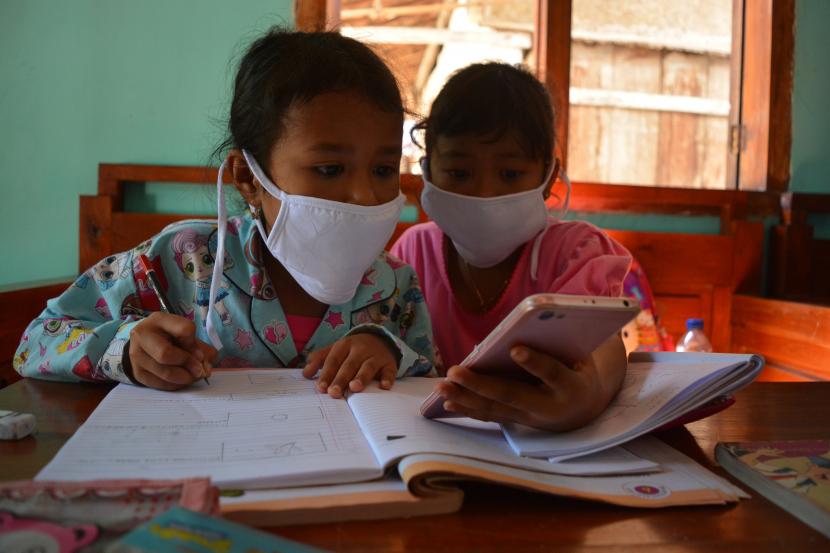UNAIR NEWS – Since Covid-19 has spread in Indonesia, various aspects of life have been affected, especially in the field of education. It has been 4 months, students in Indonesia have been learning online.
However, a problem exists as not all places are connected to the Internet. It can be seen from the shared images on social media showing students doing assignments on the side of the road, on the hills, also on the roof. Even in Aceh, someone has fallen from height as they were looking for Internet signals.
In response to this issue, Dr. Ir. Soegianto Soelistiono, M.Si., a lecturer in Physics at Faculty of Science and Technology, Universitas Airlangga (FST UNAIR) said that the internet network in Indonesia is good enough to meet the data connection needed in Indonesia. The problem is, during this pandemic, a new concept emerged and it prioritized the use of digital systems.
“This digital system could still be done even though it is not based on a streaming system. But due to the hype earlier, what came into mind was how to change the regular classes to online classes, streaming came to mind, so most people use the streaming system to substitute the physical classes, “he said on Tuesday, July 28, 2020.
Soegianto continued, what makes the network system in Indonesia inadequate for the devices used by students and telecommunications towers is Coronavirus issue.
In his opinion, performance of the internet network is quite simple for small amount of data transfer consumption bites per second (bps) or bandwidth. However, for greater need such as schools, it is not adequate and there is also cost issue.
“Of course there is technology to amplify the signal, but it means adding more devices and it is no longer practical,” he explained.
Areas with limited internet network are also creating problem for cellular service providers because the bandwidth capacity in areas far from the city is not high.
“Bandwidth signal is different matter. If you don’t get a signal, it means that it is difficult to connect with BTS (telecommunication tower, ed). So you can’t do anything. And in Indonesia, which has many hills and mountains, the signal provision could be problem for cellular service providers, “said Soegianto.
“However, low bandwidth is different from the signal capacity, because with a small signal, if the bandwidth is sufficient, it will run smoothly. Often in areas that are far from the city, it seems that the bandwidth is not high,” added the lecturer focusing on Computing.
Soegianto said that Indonesia’s population is spread across the islands so it will be difficult to cover all areas, even though Palapa Ring built as one of the telecommunication infrastructures has worked extraordinarily.
“Just to build BTS in every cell area for Java alone, the community still feels that it is still lacking. Building a BTS is certainly very expensive, including its maintenance costs, “he stated. (*)
Author: Asthesia Dhea Cantika
Editor : Binti Q. Masruroh





